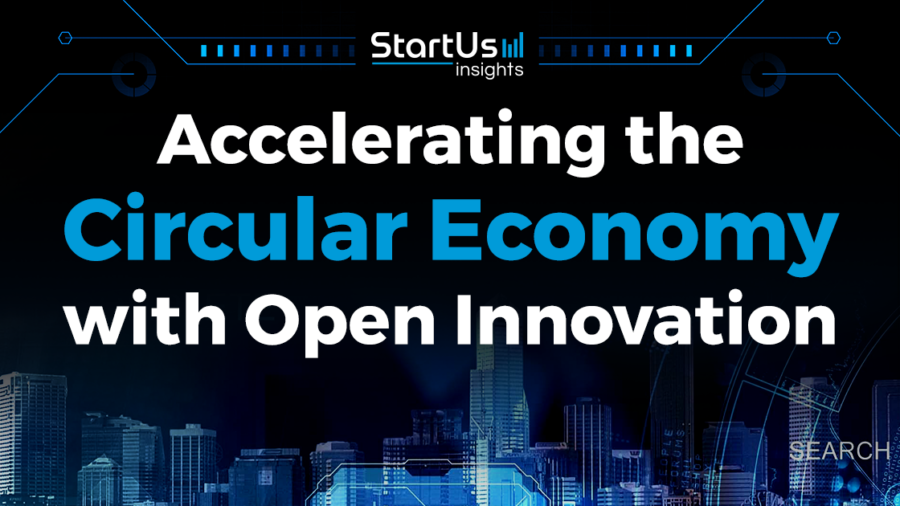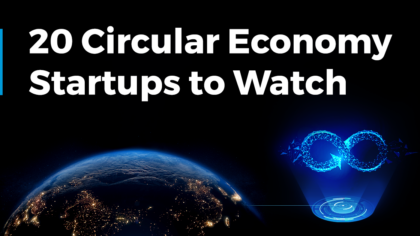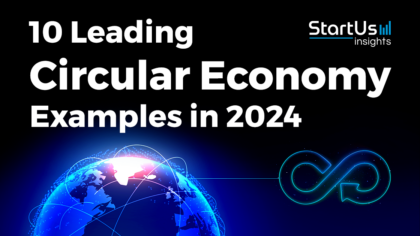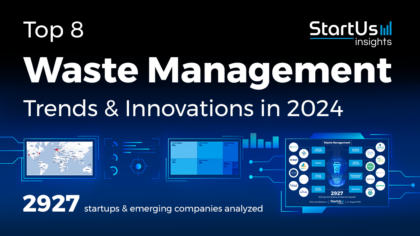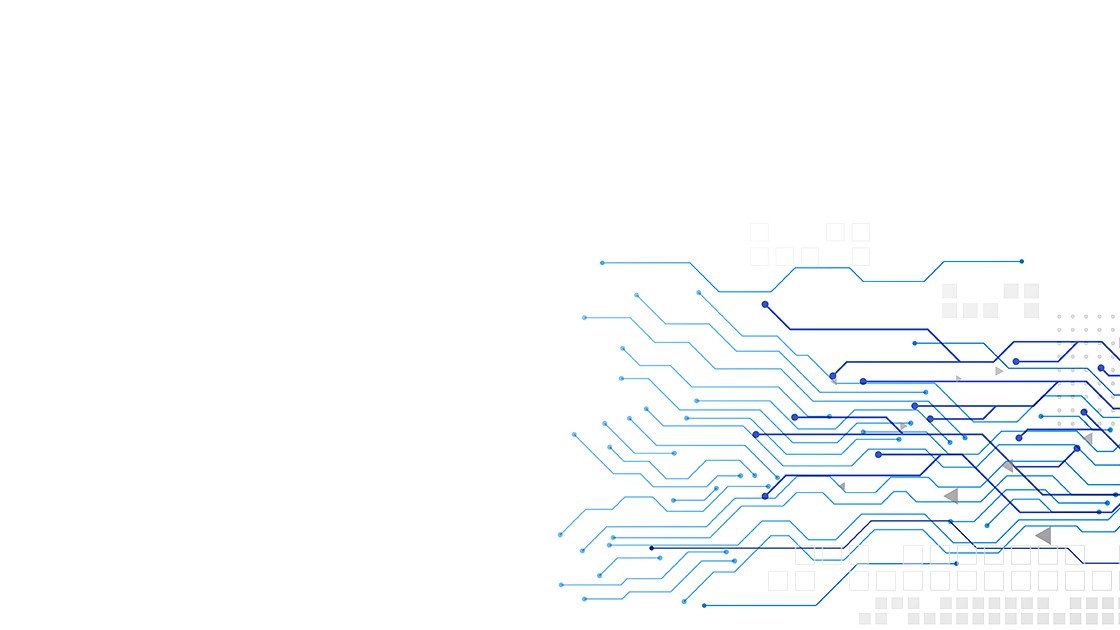In the traditional linear economy, products typically begin their lifecycle with material extraction from mines and end as waste in landfills. In contrast, the circular economy innovatively closes this loop by transforming ‘waste’ into valuable new products. This shift towards sustainable solutions is driving businesses to increasingly leverage open innovation in adopting circular economy innovation principles. These principles include recycling, remanufacturing, and repurposing, underscoring a commitment to sustainability.
Why Adopting Circular Principles is Difficult
Consumers are increasingly aware of the impact of their choices on the climate. This is why more of them now opt for circular, sustainable products over polluting alternatives. Similarly, cities and countries also incentivize circularity to better tackle waste and meet their climate goals. There is, thus, both social and legal push for companies to adopt circular principles. Companies are looking for innovative ways to transform their waste into value and close the loop.
However, for large companies, it is often not easy to replace their existing systems with circular systems. Challenges to the adoption of the circular economy by businesses can broadly be classified into four categories.
1. Technical Challenges
Companies in different industries use widely different kinds of raw materials and produce dissimilar waste. Consequently, there is no one-size-fits-all approach to recycling or repurposing. The technology to recycle certain materials just doesn’t exist or is prohibitively expensive. For instance, heterogeneity of food waste presents a scaling challenge for waste-to-energy solutions.
In a circular economy, though it is preferable that waste repurposing occurs internally or close to the site, waste from one company is often valuable to other companies. However, the lack of solutions for circular waste collection and transport makes this a challenge. Further, how companies price the new value they find in their waste materials is something they need to consider. Overall, industries need new models that are better suited for the circular economy.
2. Inconvenienced Customers
Yes, we said earlier that the push for a circular economy is coming from the customers as well, but not every customer cares. The use-and-throw approach that a linear economy has enabled provides great convenience to customers. Think of fast fashion or single-use plastics, for instance. Many consumers, particularly in developing regions, may not be willing to pay extra for circular goods.
Moreover, it is hard for companies to overcome the poor perception of recycled or reused products. To really further progress in the circular economy, companies will need to produce circular products that compete with existing products on more than just sustainability.
3. Internal Attitudes
The greatest resistance to any innovation comes from the attitudes of the incumbent market leaders. Many established companies find themselves in this trap when approaching circularity. Because of the technical challenges, transitioning to circular models costs money. By doing so, companies risk losing market traction to their competitors who continue to stick to the established practices of a linear economy.
However, far-sighted companies see circularity as an investment, not a cost. If your innovation teams are finding it hard to convince their companies about its value, present a picture of circular economy trends and the opportunities they create.
4. External Factors
While governments say they care about sustainability and circularity, there is often a lack of regulatory support for companies that are making the transition to a circular economy. Diverting waste away from landfills is great, but companies need the infrastructure to utilize it. Lastly, companies need to adapt to local contexts.
A company producing petroleum-derived products can create the same products at all its regional subsidiaries, but a circular company needs to account for the different starting materials. For instance, an agri-waste to biofuels company will receive different kinds of agri-waste in different geographies. Therefore, it is even more imperative for circular companies to work in close partnership with local communities.
The Path to Circular Economy Innovation
To accelerate the circular economy, companies need to innovate with not just better products and technologies, but new business models, supply chains, and marketplaces as well. Collaborating with all stakeholders will be critical to making this happen. Open innovation suggests that companies can and should seek innovation externally. As such, open innovation offers the quickest route to a circular economy for most large companies.
Here are a few ways you can use innovation intelligence to make your business more circular:
- Technology Scouting: New technologies are making recycling and repurposing more efficient and scalable. Through technology scouting, you can find these technologies and see how they fit your existing systems as well as innovation goals.
- Startup Scouting: Innovative startups globally are developing new circular materials and processes. Many develop technologies that repurpose waste materials or offer alternatives to polluting raw materials. Through startup scouting, you get to identify these startups before your competition does.
- Trend Intelligence: A circular economy opens up new revenue streams for companies by converting waste to value. Trend intelligence enables you to find the waste to value opportunities that work best for your business.
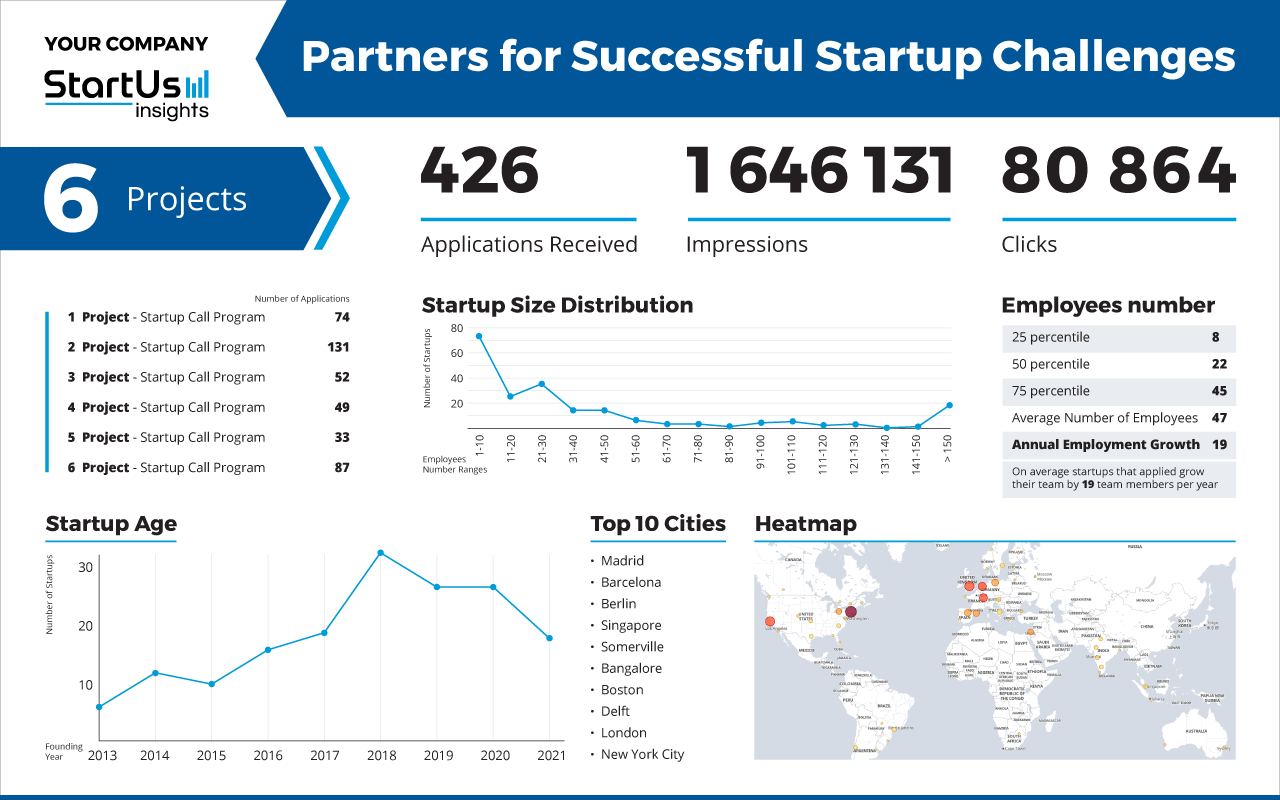
Innovation intelligence allows you to leverage external innovation by collaborating with high-potential startups globally.
Leverage Startup-Corporate Partnerships for Circular Economy
To accelerate the circular economy, companies need to innovate beyond just products and technologies; they must also reimagine business models, supply chains, and marketplaces. Collaborating with all stakeholders is crucial in this journey. Open innovation, which encourages seeking external innovation, provides a fast track towards a circular economy for many large companies. Bridging the gap between open innovation and actionable strategies is where innovation intelligence becomes key. It empowers businesses to effectively harness external advancements, translating open innovation efforts into tangible circular economy practices. Here are a few ways you can use innovation intelligence to make your business more circular:
- Startup Program: Engage directly with innovative startups through our tailored startup programs. These programs are designed to connect your business with cutting-edge solutions and collaborations, driving forward your circular economy objectives.
- Technology Scouting: New technologies are enhancing the efficiency and scalability of recycling and repurposing processes. Through technology scouting, you can discover and integrate these technologies to align with your systems and innovation objectives.
- Startup Scouting: Globally, innovative startups are creating new circular materials and processes, often focusing on repurposing waste materials or providing alternatives to polluting raw materials. Startup scouting helps you identify these emerging players ahead of your competitors.
- Trend Intelligence: Embracing a circular economy can unlock new revenue streams by converting waste into value. Trend intelligence enables you to identify and capitalize on the most suitable waste-to-value opportunities for your business.
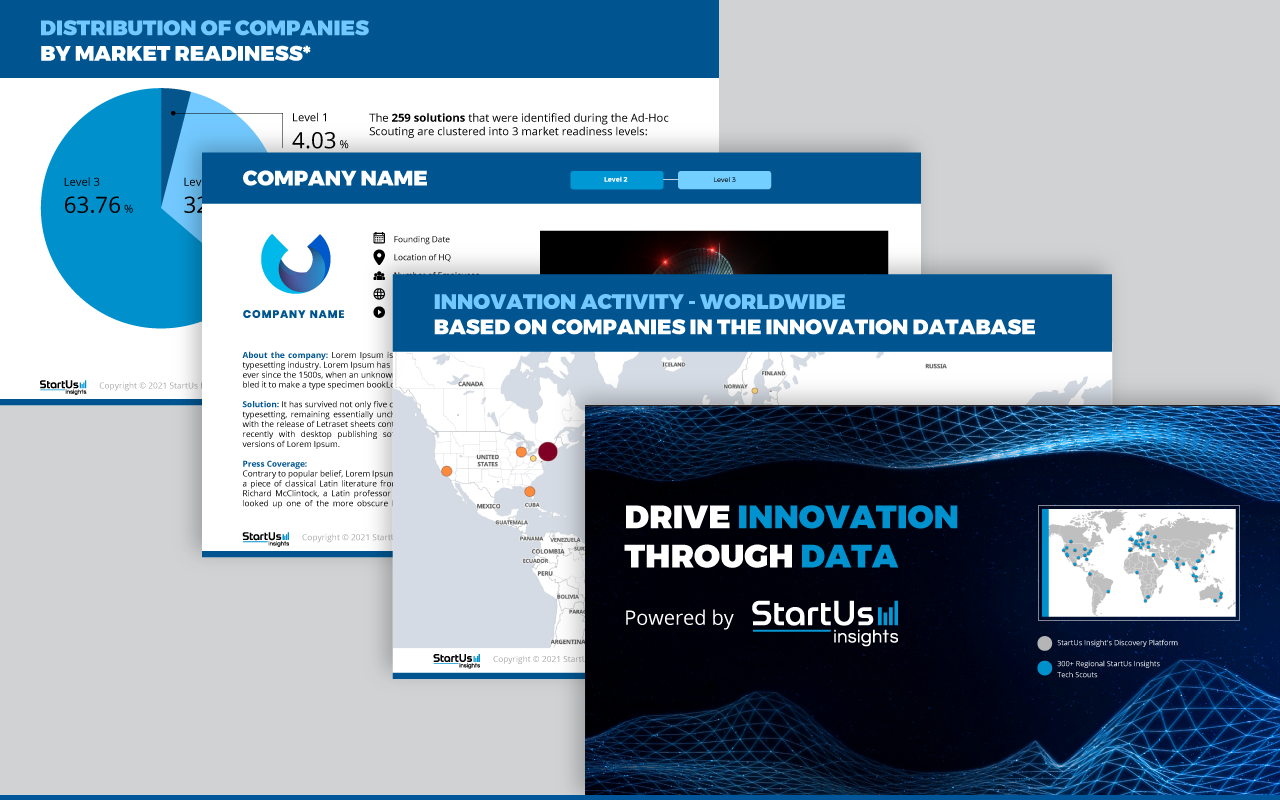
Exemplary deliverables of StartUs Insights’ Innovation Scouting project.
In today’s fast-paced world, transitioning to a circular economy is not just an environmental imperative but a competitive advantage. At StartUs Insights, we harness the power of our Big Data and AI-powered Discovery Platform, covering 3.7+ million startups and scaleups globally, to deliver fast and efficient solutions. Our services, including Startup Programs, Technology Scouting, Startup Scouting, and Trend Intelligence, are designed to seamlessly integrate into your business strategy. By partnering with us, you gain access to a wealth of innovation that can propel your transition to a circular economy. Don’t just adapt to change – lead it. Get in touch today to learn how our cutting-edge platform and services can transform your business for a sustainable future.
